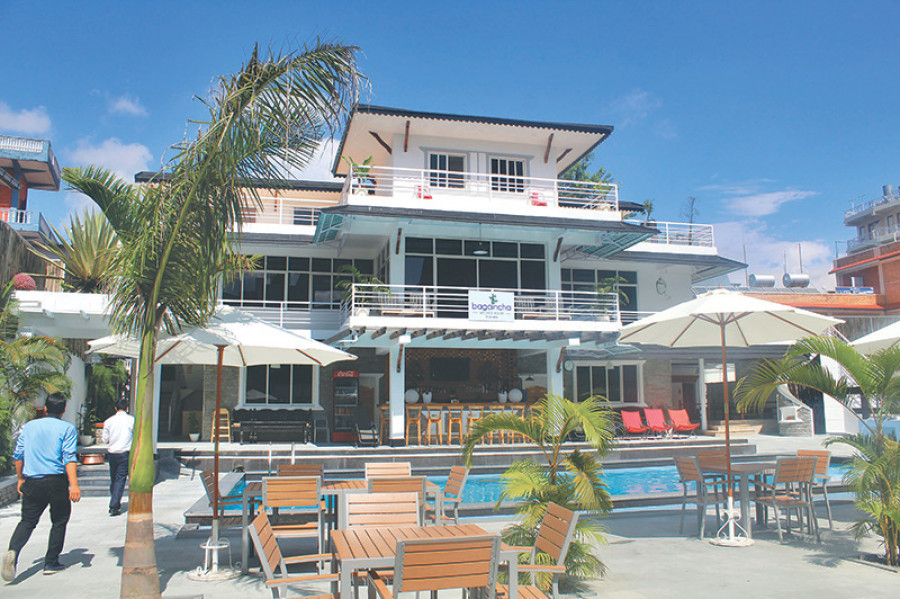Money
Hotel industry pleads for bailout after being brought to its knees
Tourism sector insiders do not expect things to stabilise for another two years even after the lockdown ends.
Sangam Prasain
Nepal's hotels are pleading for government support to keep from going under as the virus lockdown has brought them to their knees, and a potential recovery looks years away.
The hospitality industry received a savage blow from the Covid-19 outbreak and the subsequent containment measures just as it was preparing to begin another year of stellar growth following a strong performance in 2019.
Industry insiders do not expect things to stabilise for another two years even after the lockdown ends, and the sector has asked the government for policy intervention and relief packages in the run up to the budget.
“With zero income, hardly any reserve money, and a bleak immediate future, how will hotels survive through this crisis?” said Hotel Association Nepal.
The apex body of the industry, that counts around 3,500 hotels across Nepal among its members, has sought appropriate government policy to save them from bankruptcy.
Life has been rough for the hospitality industry, but the government policies and programme announced recently did not address its grievances, the association said.
“The entire hospitality industry is in a very bad depression,” said Shreejana Rana, president of the association. “The government ban on air travel and border closures have cut off tourist flow into the country. Not a single penny has trickled down to the hotel business for the past two months.”
Binayak Shah, senior vice-president of the association, said, “Even if the lockdown is lifted, the tourism industry will take time to recover because travellers will not immediately book foreign trips. The hotels will all be bankrupt by the time tourism rebounds as they have to pay staff salaries while income has come down to zero.”
Tourism is among the sectors with the highest investments in Nepal besides being a major foreign currency earner.
According to the World Tourism Organisation, one incoming tourist into a country helps directly and indirectly to generate employment for 11 individuals in various forms—seasonal and regular—for all types of human resources like skilled, semi-skilled and unskilled.
Countless jobs and businesses are at stake as a result of Covid-19, Hotel Association Nepal said. “Closing the hotels is one strategy we adopted to minimise costs. But we still face major challenges in terms of staff management and working capital expenses.”
The association said that staff management includes the issue of employee remuneration and job retention. Working capital expenses include concerns of huge interest and loan payments for newer hotels, lease payments for smaller hotels, and maintenance and operating costs for all hotels.
“Additionally, we must take into account that regular influx of international tourists even in 2021 remains a big question mark.”
While other industries can reopen and revive after the lockdown, the hospitality and tourism sector is such that it cannot restart until tourists gain the confidence to travel again.
But the government does not seem to comprehend the importance of prioritising the hospitality and tourism sector’s needs, it said.
“The state of tourism is very fragile. If this continues, it will have a tremendous negative impact on the economy. Despite the possibility of job and livelihood losses, the government seems to be very unconcerned about the tourism industry,” said Ambica Shrestha, senior tourism entrepreneur and owner of the Dwarika’s Hotel.
The association said that a tri-party agreement between the government, employers and employees was essential, and that an adequate relief package incorporating a job retention fund must be provided.
In addition, a tourism development fund must be set up so resources can be efficiently allocated to businesses on a need basis, it said.
Former president of the association Yogendra Sakya said, “Star hotels, tour operators and domestic airlines cannot survive with domestic tourists alone. International flights are the key to the survival and revival of Nepali tourism. So, what can Nepal do to entice them?”
The country's hospitality and tourism sector was riding high prior to the pandemic with a growth in new hotels and international chains and Visit Nepal 2020 aiming to welcome 2 million tourists.
The association said that it would take at least two years to return to its pre-pandemic state. “However, we remain optimistic that the government will give due priority to our sector’s needs in the upcoming budget. And by working together, we remain hopeful that we can survive, revive and thrive past this catastrophe.”




 9.83°C Kathmandu
9.83°C Kathmandu















